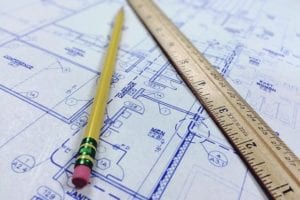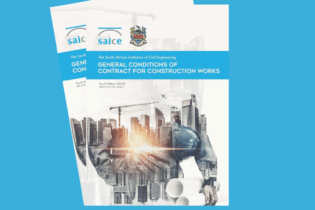In spite of fact that the construction industry has been allowed to reopen, a survey conducted by the South African Council for the Architectural Profession (SACAP) and the South African Institute of Architects (SAIA) shows severe hardship has already hit architectural firms across South Africa as a result of the Covid-19 lockdown.
“If you think of the architects as the ‘canaries in the coal mine’, the survey paints a very bleak picture,” says Simmy Peerutin of Peerutin Architects, in his capacity representing the Cape Institute of Architecture (CiFA) on the Western Cape Property Development Forum (WCPDF). Peerutin is also the chair and a former vice president of the Practice Committee of the South African Institute of Architects, and former president of the Cape Institute for Architecture. The survey contains the responses of 1 817 practices across the country, potentially employing 12 600 staff. With 7% already having retrenched staff and with many more expected to retrench within the next three months, the percentage retrenched was anticipated to be between 16% (best case scenario) and 27% (worst case scenario). With the WCPDF requesting specific information out of this survey to reflect the position in the Western Cape, it was revealed that out of the 1 817 practices countrywide, 594 practices were located in the province and had been employing 4 053 staff before the lockdown. Of these, 317 staff (8%) had already been retrenched, and it was estimated that by the end of the next three months this number could rise in the Western Cape to as many as 1 066 (26%). Says WCPDF chairperson, Deon van Zyl says there is a perception that professional services have not been hard hit by the lockdown, but the results of this survey show how deep the pandemic has hit the production line of property development.“This means that the repercussions of the lockdown will be felt for years to come, and will have another huge impact on what was already a severely depressed and struggling property development and construction sector even before Covid-19.”
Of the 594 practices in the Western Cape, 10% had already closed their doors, while a further 18% indicated they would probably be forced to do the same. With the survey taking into account all levels of staff within the profession – architects, architectural technologists, draughtspeople and other support staff – it was clear in both the Western Cape and nationwide the hardest level being hit were those of architectural technologists. “Technologists tend to do smaller projects and are therefore the worse hit among the profession. The report showed that up to 43% of this level of the profession could ultimately be retrenched,” explains Van Zyl. Another major factor revealed in the report was the national dissatisfaction with government aid, for which 32% of all practices had applied. Across the country, 27% had applied for UIF and 12% from the Covid-19 response fund, purposely set up to help businesses through the crisis. Of those who had applied, 60% had received UIF aid, but only 8% had received aid from the Covid-19 Response Fund. Exacerbating the situation even further nationwide, 62% of the 1 817 practices who responded have had invoices outstanding for more than 30 days, creating huge cash flow problems with no new work coming in. “It is estimated that R2.99 billion is outstanding in total, of which R1.44bn is owed by public sector. So the architectural profession in South Africa, on which the actual technical production line of property development begins, is essentially crippled,” concludes Peerutin.





